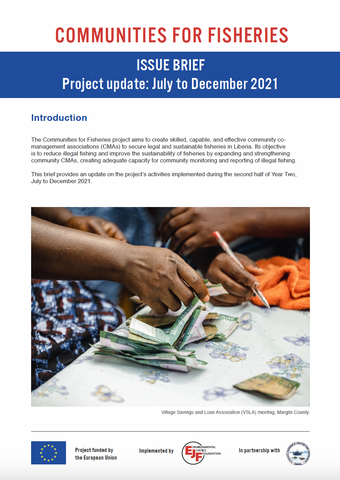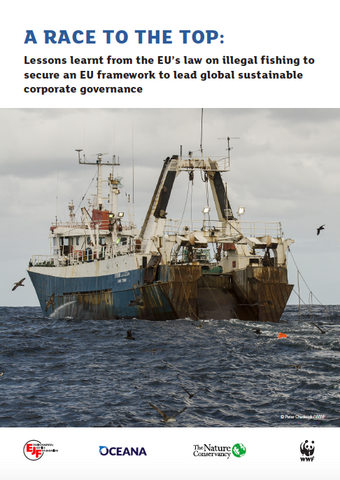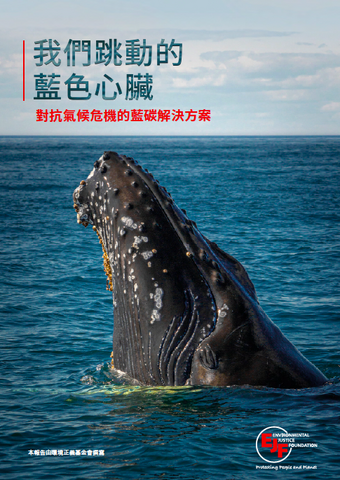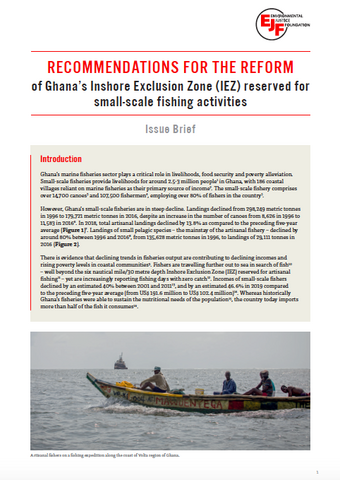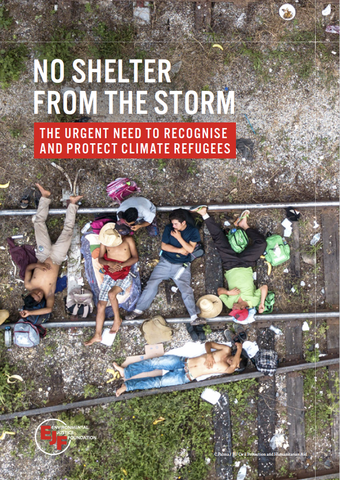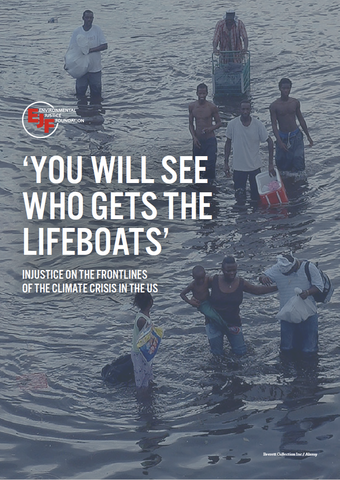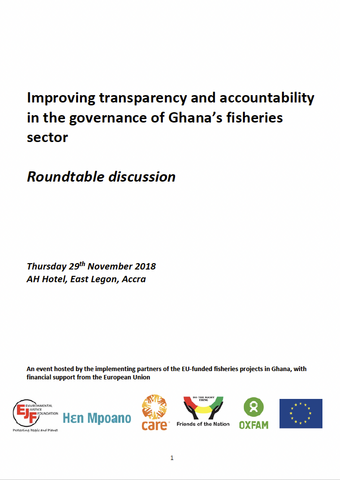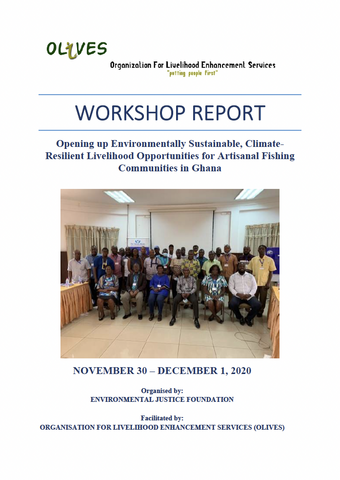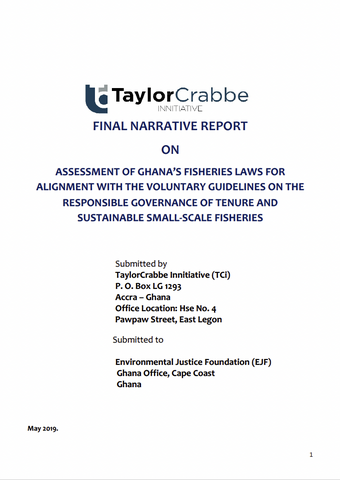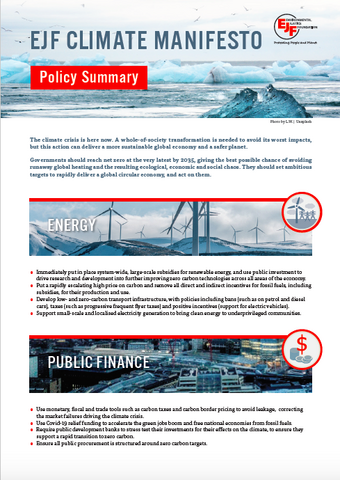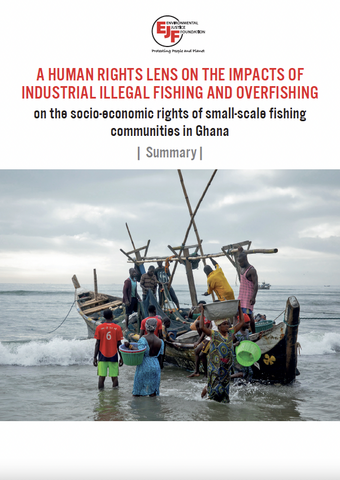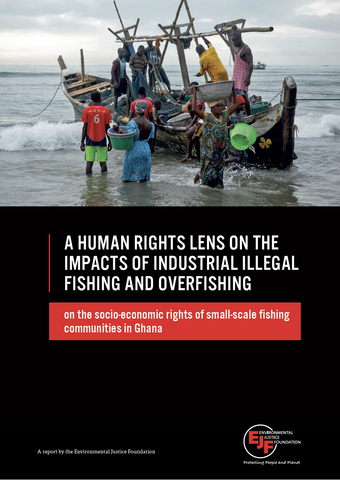Communities for Fisheries project update - July-December 2021: The EU-funded Communities for Fisheries project aims to create skilled, capable and effective community co-management associations (CMAs) to secure legal and sustainable fisheries in Liberia. This brief summarises the progress made under the project from July to December of 2021.
A race to the top: Lessons learnt from the EU’s law on illegal fishing to secure an EU framework to lead global sustainable corporate governance: In 2022, the European Commission intends to release its legislative proposal for a Sustainable Corporate Governance Directive on mandatory human rights and environmental due diligence. The Environmental Justice Foundation, Oceana, The Nature Conservancy and WWF strongly encourage the EU to deliver a robust and world-leading Sustainable Corporate Governance framework, outlining their recommendations in this report informed by the lessons learnt from the EU’s law on illegal fishing.
Recommendations for the reform of Ghana’s Inshore Exclusion Zone (IEZ) reserved for small-scale fishing activities: There is an urgent need to improve the management of Ghana’s marine fisheries to reverse declines in landings and secure the livelihoods of small-scale fishers. This paper sets out the case for an extension of the zone reserved for small-scale fishers in Ghana to protect local livelihoods.
No shelter from the storm: The urgent need to recognise and protect climate refugees: Legal protections for those forced from their homes by the climate crisis are patchy and not fit for purpose. This report, which examines international frameworks that touch on the issue, found that definitions are vague, and protections are inconsistent.
Improving transparency and accountability in the governance of Ghana’s fisheries sector - Meeting report: This roundtable discussed the role of transparency and accountability as pillars of good governance of natural resources, identified challenges in the fisheries sector, and mapped a way forward.
Opening up Environmentally Sustainable, Climate- Resilient Livelihood Opportunities for Artisanal Fishing Communities in Ghana - Workshop report: The aim of the workshop was to examine previous and ongoing livelihood projects with a view to exchanging experiences, lessons learned and best practices to inform the design of future livelihood programmes for fishing communities in Ghana, with a specific focus on small-scale agriculture.
Assessment of Ghana’s fisheries laws for alignment with the voluntary guidelines on the responsible governance of tenure and sustainable small-scale fisheries: This report identifies how the key principles of the Voluntary Guidelines on the Responsible Governance of Tenure, and the Voluntary Guidelines for Securing Small-Scale Fisheries can be implemented, and provides concrete recommendations for the revision of Ghana’s 2002 Fisheries Act.
Summary: A human rights lens on the impacts of industrial illegal fishing and overfishing on the socio-economic rights of small-scale fishing communities in Ghana: This is a summary of EJF's report "A human rights lens on the impacts of industrial illegal fishing and overfishing on the socio-economic rights of small-scale fishing communities in Ghana", showing that the basic human rights of Ghana’s fishing communities, including the right to adequate food, adequate standard of living and just working conditions, are under threat.
A human rights lens on the impacts of industrial illegal fishing and overfishing on the socio-economic rights of small-scale fishing communities in Ghana: The basic human rights of Ghana’s fishing communities, including the right to adequate food, adequate standard of living and just working conditions, are under threat.
